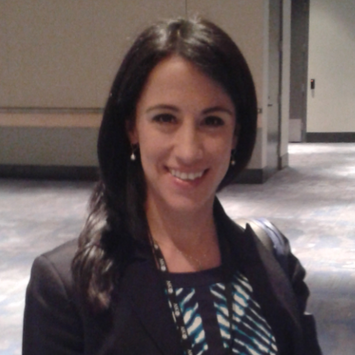
Cancer in My Community is a Cancer.Net Blog series that shows the global impact of cancer and how people work to care for people with cancer in their region. Yanin Chávarri-Guerra, MD, is a medical oncologist at Instituto Nacional de Ciencias Médicas y Nutrición Salvador Zubirán in Mexico City, Mexico. Her primary areas of clinical practice and research are breast cancer and oncogenetics. She has a special interest in access to cancer care and patient navigation programs for underserved populations. You can follow her on Twitter.
Why I care for people with cancer
As an oncologist, my desire is to change the course of disease for my patients with cancer. I became a breast cancer specialist because it is the most common cancer in women worldwide and in my country, Mexico. The best part of being a breast cancer specialist is when I am able to detect a patient’s disease early, the treatment often works for them, and they become cancer-free. However, sometimes the course of the disease can’t be changed. In those cases, providing patients with a better quality of life and helping reduce their symptoms is also gratifying. I believe that in the end, our work as oncologists is to give our patients treatment options that align with their preferences and help them achieve their goals.
My other passion is oncogenetics, which helps people with cancer get answers about the cause of their disease by looking for changes, called mutations, in their genes. Oncogenetics helps people with cancer make decisions about their treatment and understand their risk for other cancers. It is also an opportunity to help their families understand their own risk and offer them preventive strategies.
What cancer is like in Mexico
In Mexico, like in other low- and middle-income countries, the number of new cancer diagnoses and cancer-related deaths is on the rise. Cancer is the third leading cause of death for Mexicans, and the top leading causes of cancer death are lung, stomach, liver, prostate, and breast cancers. High mortality rates can partly be tied to late diagnoses, which means that the cancer is found at a later stage, and limited access to cancer care. The reasons behind these delays have been attributed to poor health care infrastructure, a shortage of health care professionals, and other social and cultural factors. Unfortunately, many Mexicans still have no insurance coverage, and a significant number of our patients have to pay out of pocket for their medical care, which greatly limits their access to new diagnostic tools and treatments.
I work at Instituto Nacional de Ciencias Médicas y Nutrición Salvador Zubirán, which is a public hospital that serves as a referral center for patients from any part of Mexico. I work in the oncology department and see patients in the breast cancer clinic and in the oncogenetics clinic. The cases of our patients with breast cancer are discussed in a multidisciplinary tumor board, where all the specialists review each case and recommend the best available treatments. At the oncogenetics clinic, I collaborate with the department of genetics in order to offer genetic cancer risk assessment and genetic testing for patients at risk of having hereditary cancer.
Access to genetic testing in Mexico is limited, mainly due to its high cost. In this regard, we have an ongoing collaboration with the City of Hope National Medical Center in Duarte, California, which allows us to test our patients through a research project. Through this strategy, we have tested more than 1,000 patients from our hospital and from other public hospitals. We have also provided these patients with recommendations for strategies to reduce their risk of cancer, as well as that of their families.
Where patients can find local resources and support in Mexico
People with cancer in Mexico can get financial assistance from several government institutions, including Instituto de Salud para el Bienestar (INSABI) for those without insurance. Insured employees and their families can get assistance from Instituto Mexicano del Seguro Social (IMSS), Instituto de Seguridad y Servicios Sociales de los Trabajadores del Estado (ISSSTE), Secretaría de Defensa Nacional (SEDENA), Secretaría de Marina (SEMAR), and Petroleos Mexicanos (PEMEX).
There are also several non-government organizations that offer different types of resources, such as Asociación de Lucha contra el Cáncer, Casa de la Amistad para niños con Cáncer, Fundación Teresa de Jesús, Fundación Rebecca de Alba A.C. Fundación ALMA, SALVATi A.C., and Unidos, among many others.
Patients can find general cancer information through online resources, such as INFOCancer, which is provided by the National Cancer Institute in Mexico. Additionally, Juntos Contra el Cáncer offers cancer information, including a list of other resources.
